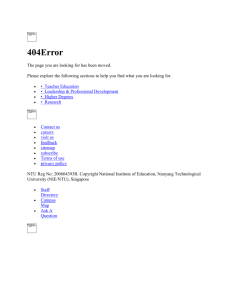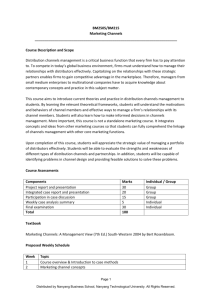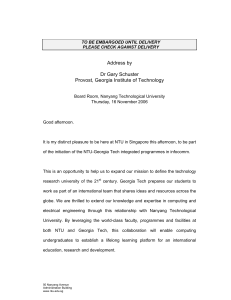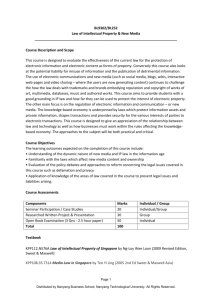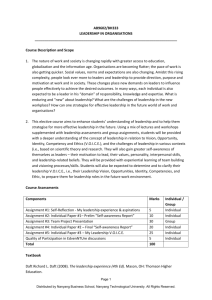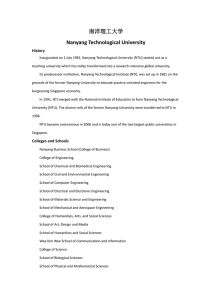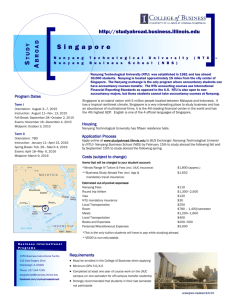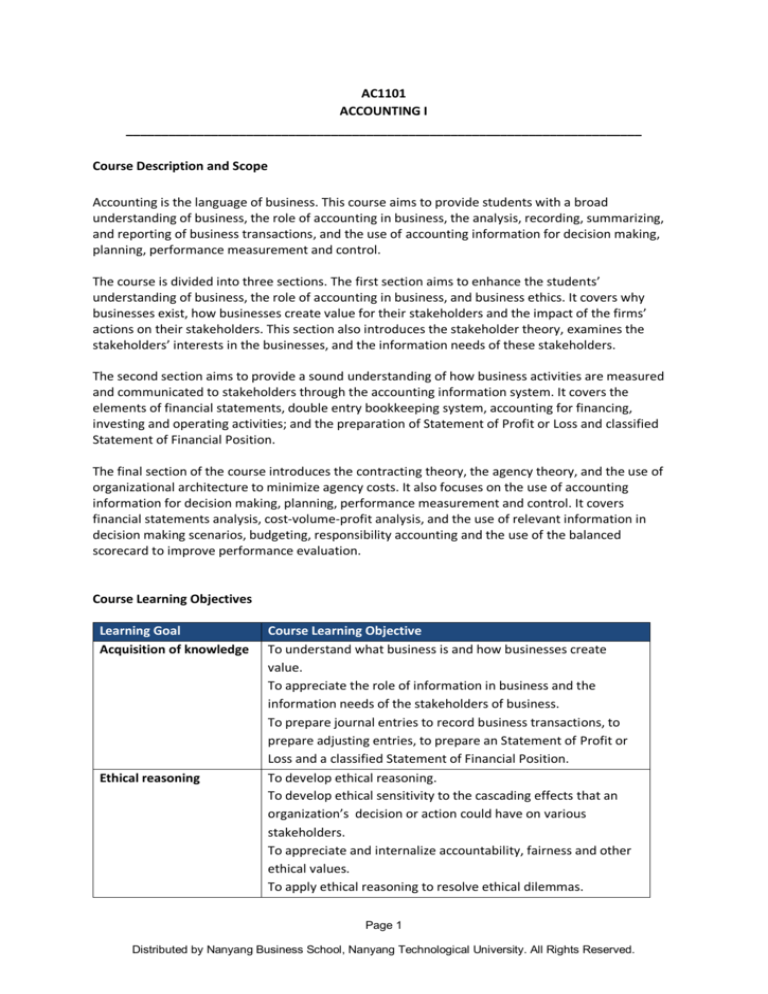
AC1101
ACCOUNTING I
_________________________________________________________________________
Course Description and Scope
Accounting is the language of business. This course aims to provide students with a broad
understanding of business, the role of accounting in business, the analysis, recording, summarizing,
and reporting of business transactions, and the use of accounting information for decision making,
planning, performance measurement and control.
The course is divided into three sections. The first section aims to enhance the students’
understanding of business, the role of accounting in business, and business ethics. It covers why
businesses exist, how businesses create value for their stakeholders and the impact of the firms’
actions on their stakeholders. This section also introduces the stakeholder theory, examines the
stakeholders’ interests in the businesses, and the information needs of these stakeholders.
The second section aims to provide a sound understanding of how business activities are measured
and communicated to stakeholders through the accounting information system. It covers the
elements of financial statements, double entry bookkeeping system, accounting for financing,
investing and operating activities; and the preparation of Statement of Profit or Loss and classified
Statement of Financial Position.
The final section of the course introduces the contracting theory, the agency theory, and the use of
organizational architecture to minimize agency costs. It also focuses on the use of accounting
information for decision making, planning, performance measurement and control. It covers
financial statements analysis, cost-volume-profit analysis, and the use of relevant information in
decision making scenarios, budgeting, responsibility accounting and the use of the balanced
scorecard to improve performance evaluation.
Course Learning Objectives
Learning Goal
Acquisition of knowledge
Ethical reasoning
Course Learning Objective
To understand what business is and how businesses create
value.
To appreciate the role of information in business and the
information needs of the stakeholders of business.
To prepare journal entries to record business transactions, to
prepare adjusting entries, to prepare an Statement of Profit or
Loss and a classified Statement of Financial Position.
To develop ethical reasoning.
To develop ethical sensitivity to the cascading effects that an
organization’s decision or action could have on various
stakeholders.
To appreciate and internalize accountability, fairness and other
ethical values.
To apply ethical reasoning to resolve ethical dilemmas.
Page 1
Distributed by Nanyang Business School, Nanyang Technological University. All Rights Reserved.
Problem solving and
decision making
Others
To analyze and evaluate accounting information for decision
making, planning andcontrol.
To develop problem-solving skills.
To develop analytical skills.
To develop self learning abilities and attitudes toward active
learning.
To develop research skills.
To develop written and verbal communication skills.
Course Assessments
Components
Class participation
Team project
Mid-term test
Quiz 1
Quiz 2
Final examination
TOTAL
Marks
10%
15%
15%
5%
5%
50%
100%
Individual / Group
Individual
Group
Individual
Individual
Individual
Individual
Textbook
The readings listed in the proposed weekly schedule are extracted from two customized textbooks
titled AB1101 – Accounting I for 2012-2013 - Book I and II. The chapters of the customized textbooks
are extracted from the following textbooks:
a) AG Andrew W. Ghillyer (2012), “Business Ethics Now”, 3rd Edition, McGraw-Hill (NTU Library Call
Number: To be advised; 2nd Edition: HF5381 G424 2010)
b) GNB Garrison R. H., Noreen, E.W. Brewer, P. C. (2012), “Managerial Accounting”, 14th Edition,
McGraw-Hill (NTU Library Call Number: HF5657.4.G242 2012)
c) KEDL: Ketchen D. J., Eisner A.B., Dess G. G., Lumpkin G. T. (2008-2009), “Strategy”, 1st Edition,
McGraw-Hill. (NTU Library Call Number: HD30.28.S898STR)
d) LW: Lawrence A. T., Weber J. (2011), “Business and Society: Stakeholders, Ethics, Public Policy”,
13th Edition, McGraw-Hill (NTU Library Call Number: HD60.L419 2011)
e) STH: Spiceland J. D., Thomas W., Herrmann D. (2011), “Financial Accounting”, 2nd Edition,
McGraw-Hill. (NTU Library Call Number: HF5636.S754 2011)
f) ZIM: Zimmerman J. L. (2011), “Accounting for Decision Making and Control”, 7th edition, McGrawHill.
Page 2
Distributed by Nanyang Business School, Nanyang Technological University. All Rights Reserved.
Proposed Weekly Schedule
Week
1
2
3
4
5
6
7
8
9
10
11
12
Topic
Business, Stakeholders and Ethics
Role of Accounting in Business
The Accounting System
Financial and Investing Activities
Operating activities – I (Merchandising Company)
Operating activities – II
The Accounting Cycle and Preparation of Financial Statements
Financial Statements Analysis
Operating activities – III
Information for Decision Making – I (Cost-volume-profit “CVP” Analysis)
Contemporary Issues in Management Accounting
Information for Decision Making – II (Relevant Costing)
Information for planning evaluation and control - I
Information for planning evaluation and control - II
Page 3
Distributed by Nanyang Business School, Nanyang Technological University. All Rights Reserved.

